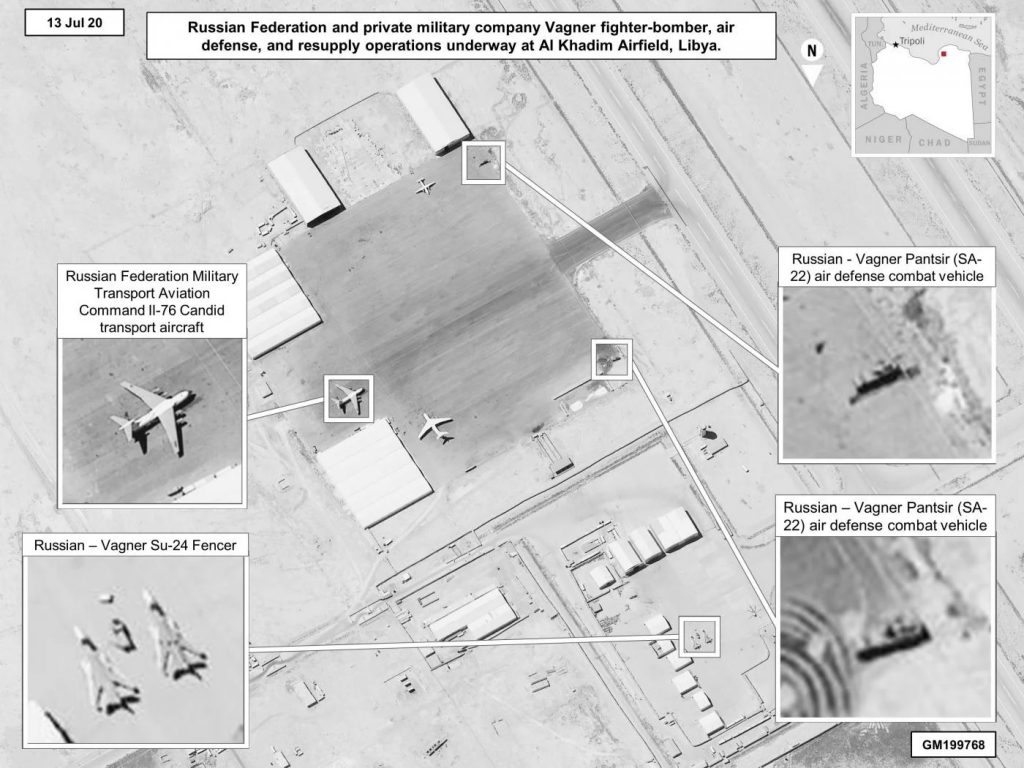US accuses Russia of continuing to arm Wagner Group in Libya

US military’s Africa Command says satellite image indicates Moscow’s Ministry of Defence is ‘supporting’ Russian paramilitary contractor
The United States military’s Africa Command (Africom) said new evidence gathered in Libya points to Russia’s continued involvement in the conflict via a paramilitary contractor known as the Wagner Group.




